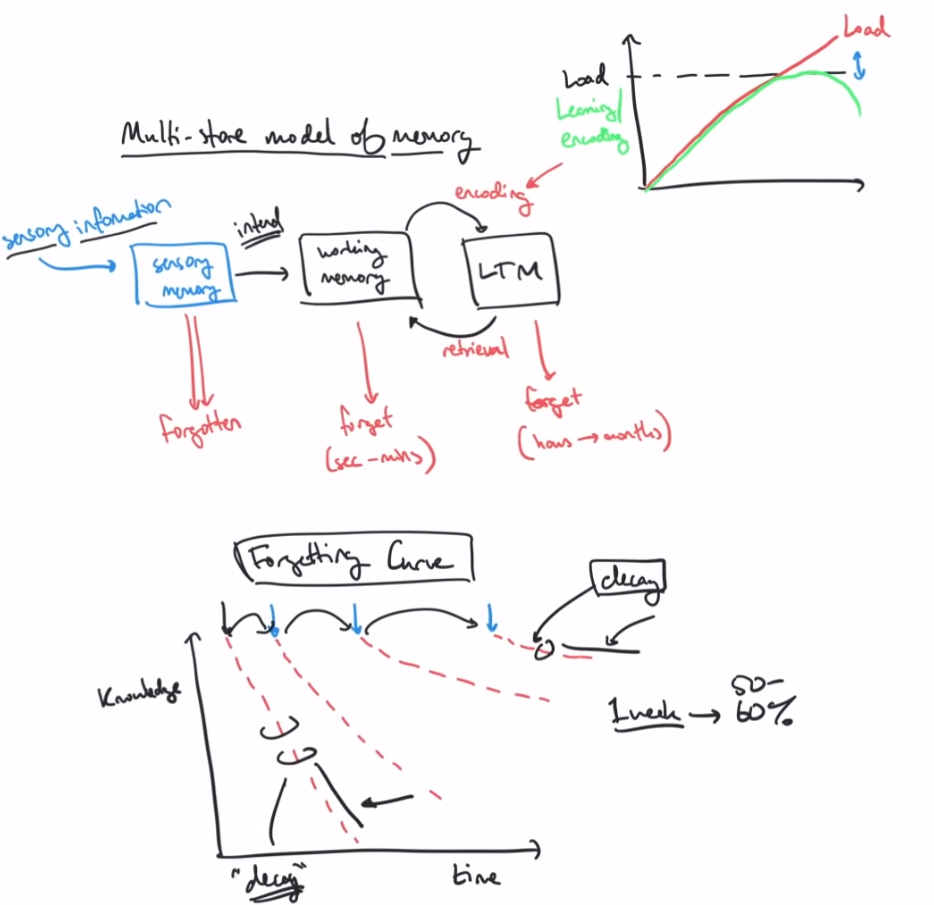-
what? create/refine study/learning method - Higher Level Learning
-
why? learn, remember, & think better & faster v
-
Tidy library framework
- Re-arrange/read the library with Pragmatism periodically
- Analogy
- book = info, note, small portion of knowledge
- shelfs = subject - categorizes books
- bookcase = fields - categorizes shelfs
- Libraries = extended abstract - ur own custom categorization
- Cities = Holistic thiking - connects info in libraries optimally
- Prestudy = Label books, move…
- shelfs, bookcases, and libraries in the right cities/places
- Encoding = Book arrangement into shelfs & in library itself
- Retrieval = find a book in a shelf from specific library
-
0
- Note taking
- How we store memory
- Basics
- Info
- Priming
- Encodng & Cognitive load
- Retention
- Reference
- Overstudying
- Retrieval

- Basics
-
1
- Contextual
- reading
- don’t read in a linear way - Prestudy - Priming
- Book are tools, we use them, not the opposite
- Solo taxonomy - prefer extended abstract
- integrate new knowledge into old knoledge
- don’t just write into the note of the book itself
- don’t read in a linear way - Prestudy - Priming
- taking notes
- Only after higher level learning
- Don’t offload too quickly
- Note unwanted burden away like details, but not if your working memory is capable of retaining it while using HLL and cognitive load to preocess it futher
- type or write, but do it relationally, not lineary
- HT new language
- reading
- Contextual
- archived
- semi usefull vocabs
- deep processing - the product of higher order learning
- synthesizing - like evaluating in the Bloom’s principles
- school
- Chose where to get info trough Cone of learning
- Prestudy - Priming
- Where to put info for optimal retrieval?
- Evaluating and Chunking it to the bigger picture and past knowledge.
- How to write it for better encoding?
- Cognitive load is used to enhance encoding often with Bloom’s principles supplemented with Inquiry learning and personal Study techniques
- Always be concise and clear
- semi usefull vocabs